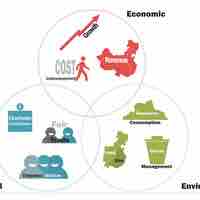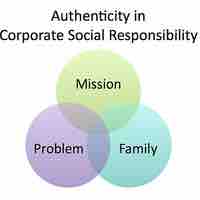Chapter 13
Ethics in Business
By Boundless
Ethics are the set of moral principles that guide a person's behavior.
Moral reasoning is the process in which an individual tries to determine what is right and what is wrong.

Culture reflects the moral values and ethical norms governing how people should behave and interact with others.
Employees can more easily make ethical decisions that promote a company's values when their personal values match the company's norms.

Ethical decisions involve judgments of facts and situations that are subject to interpretation and other influences.

Internal stakeholders, primarily employees, owners and managers, are directly involved in the operations and strategy of the organization.

Integrating businesses into society results in a wide variety of interactions with a number of different external stakeholder groups.
Ethical decision making is the process of assessing the moral implications of a course of action.

Organizations use compliance and ethics programs to demonstrate and reinforce their commitment to ethical practices.

Whistle-blower protection provides safeguards against retaliation for those who report suspected legal or ethical violations.

Managers are responsible for upholding the ethical code and helping others to do so as well.

Organizations adopt codes of conduct to guide employees' actions and decisions.

Corporate social responsibility is a company's sense of obligation towards social and physical environments in which it operates.
Most arguments both for and against CSR are based on how a company's attempts to be socially responsible affect its bottom line.
Social responsibility audits are a process of evaluating a corporation's social responsibility performance.

One type of corporate social responsibility focuses on three key dimensions of sustainability—environmental, social, and economic.

Philanthropic corporate social responsibility involves donating funds, goods, or services.
According to the ecocentric model of CSR, environmental protection and sustainability are more important than economic or social benefits.
CSR provides a financial return in the form of lower costs, higher revenue, and returns to investors.